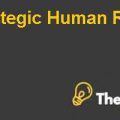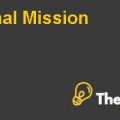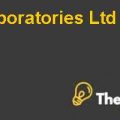Case Analysis: Fiedler Contingency Theory Case Study Solution
Introduction
A key component of success in the changing and complicated world of organisations is good leadership. However, there is no one-size-fits-all method of leadership since various circumstances need various leadership trajectories. The Fiedler's Contingency Theory, created by Fred Fiedler in the 1960s, provides insightful information regarding this critical interaction between situational conditions and leadership. The purpose of this case study is to apply Fiedler's theory to a real-world situation, illuminating its useful applications and providing suggestions for leadership choice-making. (Dias, 2022)
According to Fiedler's Contingency Theory, a leader's performance is influenced by how their management style and the particulars of the circumstance interact. It contradicts the widely held belief that certain leadership philosophies are consistently effective and puts forth the idea that a leader's effectiveness depends on the particular environment in which they work. Fiedler's theory aids leaders in determining which leadership style is best suitable for a certain scenario by looking at the three situational aspects of leader-member interactions, task structure, and position authority.
This examination will explore the practical application of Fiedler's Contingency Theory through the analysis of a case study. We will assess the leader-member relationships, task structure, and position authority inside the organisation to determine their influence on leadership effectiveness by investigating a real-life organisational scenario. We will then determine the ideal leadership style for the circumstance based on the theoretical framework, empowering leaders to make wise judgements and modify their approach as necessary.
This case study tries to demonstrate the applicability and value of Fiedler's Contingency Theory as a leadership strategy in modern organisations. It aims to provide leaders with the information and skills they need to successfully navigate challenging circumstances that are always changing, which will eventually increase their effectiveness and generate favourable organisational results.
Background
The organization/company under examination in this case study operates in a highly competitive industry characterized by rapidly changing market dynamics. It is a medium-sized technology firm that specializes in developing innovative software solutions for businesses. With a workforce comprising diverse talents and expertise, the organization faces the challenge of maximizing productivity and achieving optimal performance while maintaining employee satisfaction and motivation.
This case study's organization/company is a player in a highly competitive sector with dynamic market forces that change quickly. It is a medium-sized technology company that focuses on creating cutting-edge software solutions for companies. The organisation has the problem of maximising efficiency and attaining maximum performance while preserving employee happiness and motivation due to a staff made up of a variety of abilities and experience.
Fiedler's Contingency Theory, which offers a framework for comprehending the interaction between leadership style and situational circumstances, is quite pertinent to this issue. We can learn more about the efficacy of the leadership and how it affects the performance of the team by evaluating the relationships between the leader and the team members, the task structure, and position authority within the organisation. By utilising Fiedler's theory, we may determine the leadership style that best suits the projects’ and the team's unique qualities, perhaps providing answers to the problems that currently exist and improving performance as a whole.
Fiedler's Contingency Theory
Key concepts and assumptions of Fiedler's Contingency Theory
A thorough framework for comprehending the connection between leadership style and organisational situational circumstances is provided by Fiedler's Contingency Theory. The theory's central claim is that effective leadership depends on how well a leader's style fits the particulars of the current circumstance.
Fiedler's thesis has as one of its fundamental ideas that leaders have a consistent leadership style that is either relationship- or task-oriented. Task-oriented leaders prioritise completing tasks, emphasising structure, and achieving goals. Alternatively, relationship-oriented leaders place a high value on establishing and sustaining strong interpersonal ties within the team, encouraging trust, cooperation, and worker happiness. (Elli, 2022)
The theory also identifies three situational factors—leader-member relationships, task organisation, and position power—that affect leadership effectiveness. Relationships between team members and the leader are referred to as leader-member relations. Task structure refers to the organisation and clarity of the tasks at hand, as well as their complexity and the existence of clear instructions. Position power is a measure of a leader's official authority and sway inside the organisational structure.
According to Fiedler's view, attempts to modify a leader's style might lead to diminished effectiveness since leaders are less adaptable in their leadership style. Additionally, the theory makes the assumption that situational elements are mostly stable and challenging to change. The focus is on connecting leaders with circumstances that fit their chosen leadership style as a result..........
Case Analysis Fiedler Contingency Theory Case Study Solution
This is just a sample partial case solution. Please place the order on the website to order your own originally done case solution.













